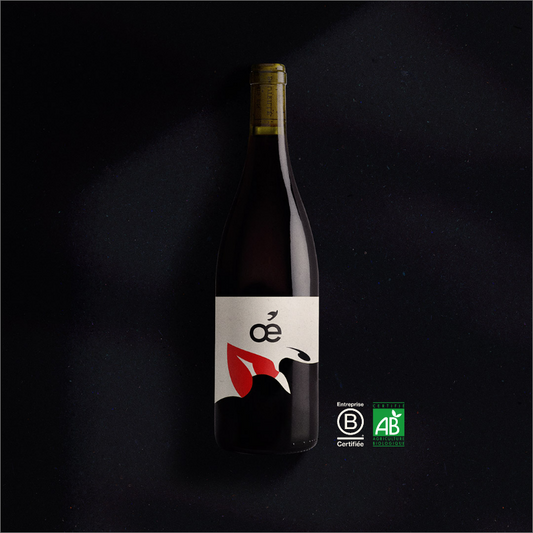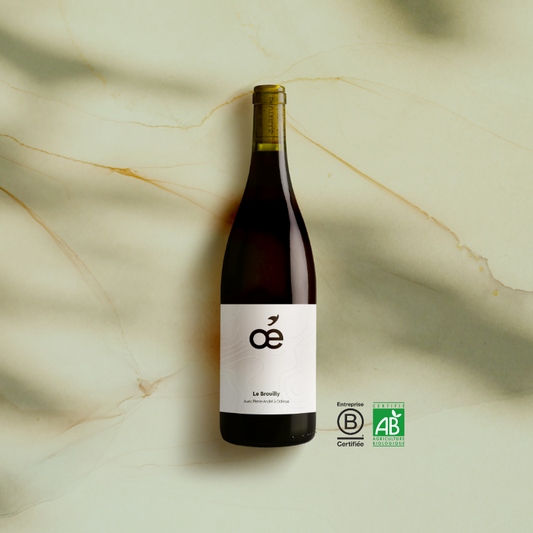Choosing an organic wine without sulfites for your health - Oé
How to select an organic wine without sulphites?
You have to understand that wines without sulfites do not exist. It is a commercial argument that producers use, but by this notion, they want to specify that during production, no sulphites have been added : we are then talking about wines without added sulphites. Nevertheless the mention "contains sulphites" is necessary on the label of the bottle. When grapes are fermented, they naturally produce sulfur which serves as an antiseptic and antioxidant. As a reminder, antioxidants are used to preserve wine .
In industrial wine, the quantity of sulfur is very important and the ingestion of this element can cause headaches or migraines. In other people, especially asthmatics, you may experience anaphylactic attacks and reactions. Sometimes, even at low doses, sulfite intolerances are felt and can cause undesirable allergic reactions , which is why you should be well informed about the wine you choose.
It is therefore advisable to turn to wines that contain a very small amount of sulphites . For these people, sweet wines and sweet wines are strongly discouraged , because the sulfur level is higher. If you want to drink a glass of wine with peace of mind, it would be better to opt for a bottle of organic wine in which there are only traces of residual sulphites . Of course, always pay attention to your wine consumption and never forget your moderation buddy for the aperitif!
Discover our fine organic Oé wines!
The roles of sulphate in wine production
The skin and the stalk of the grape naturally contain many essential elements of wine. Polyphenols , for example, are a family of chemical compounds that influence the color, taste and mouthfeel of wine. We find there the anthocyanins , the natural pigments of the grape, present on the skin which give the beautiful color of red wine , color of white wine and color of rosé wine .

It should be understood that grapes, when fermented during aging, naturally produce sulphur . Manufacturers can afford to add a few extra grams of sulfur (also called sulfur dioxide, sulfurous acid or sulfur dioxide ) to the production to protect the wine from oxidation in contact with oxygen. In this case, sulfur plays a conservative role, but it also controls alcoholic fermentation by blocking the development and propagation of bacteria and certain yeasts. Sulfur also helps to stop or prevent malolactic fermentation . Sulfur can also be used in the disinfection of barrels, vats and materials used in production to kill fungus and mold. It also plays an important role in accelerating the decomposition of the grape and in the release of tannins and aromas.
A higher dose of sulphites in conventional wines
The addition of sulfur in the vinification of red wines, white wines and rosé wines is completely legal. Conventional winegrowers using almost all stages of production: at harvest, reception of the harvest, pressing, vatting, mutage for sweet wines, at the end of alcoholic and malolactic fermentation, during maturing, conservation and storage of wine and before packaging. Those few milligrams added at each step add up to about 160 mg per liter in a typical dry red wine . In sweet white wines, up to 400 mg per liter of sulfur are found . We cannot then say that conventional wines are wines without sulfites . When the wines exceed 160 mg/l of sulphur, it will already be necessary to be suspicious. Do not rely on the indications "sulphur-free" and "sulfite-free". Take the time to read the components along with their dose.
The labeling of wine without sulphites or sulphur-free
On the label of some wine bottles, the elements "sulfite-free" or "sulphur-free" are mentioned . We would like to remind you that this is a wine without added sulfur or sulphites and this detail is very important. In the production of these wines, “natural” sulphites are added . During the fermentation of the grape, yeasts develop and there is also a formation of more or less volatile sulfur compounds. In these so-called “sulfite-free” or “sulphur-free” wines, the dose of natural sulfur is very low.
To find out why wine gives you a headache, discover this article
Why does organic wine contain less sulphite?
As part of a conventional cultivation of vines , fertilizers, herbicides and pesticides containing sulfur compounds are used. These will be felt in the wine. For organic farming, winegrowers are subject to specifications prohibiting the use of fertilizers, phytosanitary products and chemicals . To have good quality grapes, they strengthen the vine's defences, which allows them to limit chemical treatments. Grapes from organic farming do not contain sulphites. If no chemicals are used during cultivation, the winemaker can use conventional winemaking methods for aging. This authorizes him to use sulphites, but to stay within the organic concept, he will only be entitled to a few products and only a limited quantity .

Sulphite content in organic wines
To give you a precise idea of the presence of sulphites in organic wines, we are going to provide you with some figures in this section.
In a good organic dry red wine , the sulphite content varies between 70 and 100 mg/l and in a conventional wine, the maximum doses can go up to 160mg/l. A good white wine and a good organic dry rosé wine should no longer contain 150 mg/l of sulphites, while in these same wines which are industrially produced, the sulfur can go up to 210mg/l. For sweet wines and conventional natural sweet wines, the sulphite content is around 200mg/l and this content is reduced to 80mg/l in organic productions . In sparkling wines, there is only 60 mg/l of sulfur and in conventional sparkling wines, there are up to 210 mg/l of sulphites. In a conventional soft and sweet wine, the sulphites content can go up to 400mg/l and in an organic production, this content is reduced to 150mg/l.
Other inputs are also very controlled in organic winemaking (same for organic viticulture ). Only indigenous yeasts are used and the inputs must be organic .
Biodynamic wine, low sulphites
In biodynamics, the earth, nature and the lunar/solar cycles are given pride of place. Manual harvesting, plant companionship, fertilization and soil protection with natural techniques ( horn dung, herbal teas, etc. ), in short, everything is there to make a good responsible wine. A friend of organic wines, biodynamic wine also contains a very low rate of sulphites. The demeter and biodyvin labels have very precise specifications and impose doses of sulphites even lower than those of organic wines. At Oé, the doses of sulphites present in our wines are moreover closer to those of biodynamic wines than organic wines .
SAINS wine: a drink without sulfites
You can also see in the description of certain wines the indication SAINS which is the abbreviation of " Without Any Intrant Nor Sulfites Added ". It is natural wines or natural wines that are most concerned. Do not confuse organic wine with natural wine .
For organic wine, it is possible to resort to the use of sulfur and a winemaking input. For a healthy natural wine , we use grapes from organic farming and in the vinification, we use no inputs and no sulphites. In these HEALTHY wines, we find only 30 mg/litre of sulphur.
To know the difference between organic wines, biodynamic wines and natural wines, it happens here
Conventional wines
The specifications of conventional wines leave a lot of room for the addition of sulphites. The step between a well done makeup and a clown's face is quite fine, and it's the same principle for wine! We quickly add the extra gram of sulphites which completely denatures the product. Organic, biodynamic and natural wines have a more respectful approach to wine for what it is and to approach wine with its qualities and its faults.
Sulfur works as an antioxidant and a stabilizer , nothing bad in itself but it must be handled with care. Regulars of natural wines without added sulphites recognize sulfur directly when its quantity reaches 20/30 grams per litre. For ordinary tasters, it is difficult to recognize the taste of sulfur simply because we are not used to feeling and differentiating this taste. Nevertheless, a conventional wine like it contains many more additives and transformers , can lose its true flavor. The impact on health is also important to consider .








